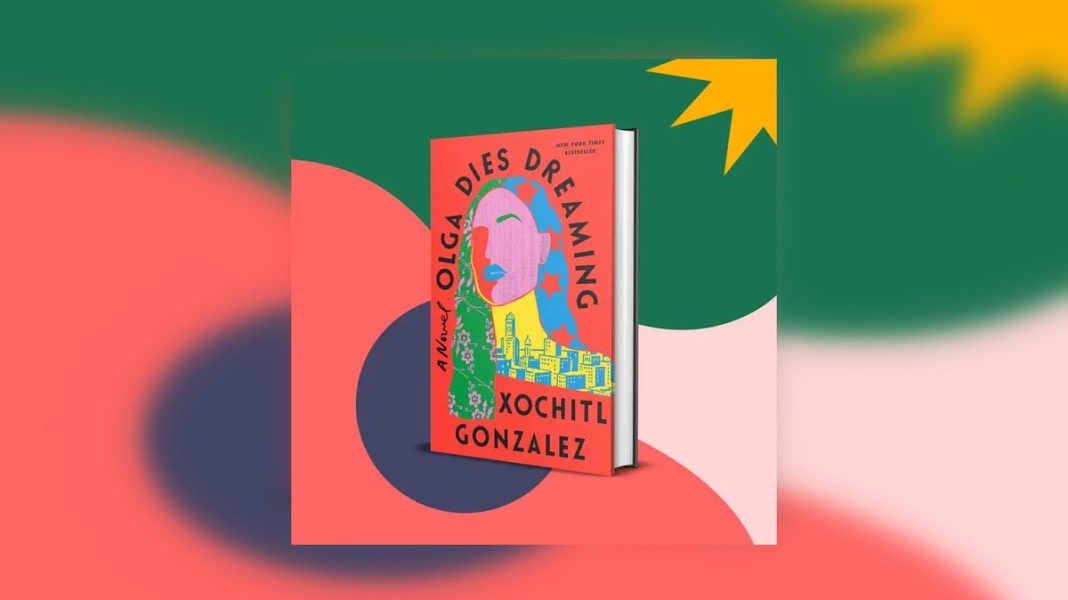“Olga Dies Dreaming” is a brilliant novel to get hold of if you want to acquaint yourself with the history of Puerto Rico and its people. It also talks in detail about the racial injustices prevalent in America and how, for decades, brown and black people have been oppressed. Politics is a murky subject, and not many authors are brave enough to approach this subject tactically without offending the current officials, who might put a ban on true stories depicting true incidents. Most authors resort to dystopian novels or satires to bring such sensitive issues to light. But that has its own cons as well. Not everyone enjoys reading satires or dystopian novels, and comprehending these might seem like a daunting task to several. “Olga Dies Dreaming” deals with the current issues in America and attacks those responsible in a manner that is direct yet not so vehement as to cause trouble. It presents us with the complete picture and leaves us to judge it.
The prominent themes in the novel range from American imperialism and Trump’s terrible presidency to the problems that diasporas have to deal with in the most powerful nation in the world. One that personally stands out for me is the way Gonzalez talks about parenting and motherhood and entwines it with the concept of “liberation.” Let’s talk about the themes in detail.
The book opens in July 2017 with Olga making arrangements for the wedding of a wealthy white American family. We get to know that she is a wedding planner, and she is quite good at her job. She often makes appearances on morning shows on television to discuss the latest trends in wedding ceremonies. Her brother Prieto is a popular congressman, and several people have stated that he is the “brown Obama.” Soon, the time shifts to November 1990, and we are presented with a letter from Olga’s mother addressed to Olga. Written in italics, these letters become very important because they help us understand the kind of person Blanca (Olga’s mother’s name) is. She makes an appearance only towards the end of the book, and throughout, we have such letters addressed to Olga and Prieto that she has written on various issues. Most of the time, she has written these to let them know what she thinks of the choices they have made regarding their careers or personal lives. She has talked a lot about the liberation of Puerto Ricans and how they have been oppressed by whites for more than a century. Ironically, in these letters, the way she expresses her opinion makes it clear that if the siblings do not listen to her, they will immediately earn the verbal thrashing of their mother. What they want or need is something that Blanca is not concerned about. As Tia Lola and Blanca’s own friend Karen say, she might be doing something brave, but she is not a good mother. Parents must be able to accept their kids’ choices and must also teach their children to be accepting of others’ choices. That is the mark of good parenting. Blanca has her own book of dos and don’ts. Those who decide not to abide by it, especially if they are her family, are bound to earn her wrath. She knew right from the start that Prieto was gay but did not for once care to talk to him about it, letting him know that it’s okay to be so and that he must not hide, fearing what others might think of him. She might have her own goals, and it’s okay to chase them just because she is a woman, but that doesn’t mean that she has to sacrifice everything to look after her family. But there are other ways of doing it. Suddenly leaving without letting anyone know about her plans and abandoning her children, who were dependent on her, assuming that they would be looked after by her mother and sister, was irresponsible of her.
The book also depicts the issues that colored queer people face. Prieto and Olga’s grandmother migrated from Puerto Rico to New York with her children to work in a factory. It was the 1960s-70s. Shifting to a place like New York didn’t bring a vast change in their culture and values. We must not forget that New York was a place that was quite progressive in this case. It was the birthplace of the Harlem Renaissance, and that too in the 1920s. But here in this family, we see how Tia Lola kept quiet about her sexuality and how Prieto also felt the need to be in the closet. As he said, it wasn’t that the people in his family would shame him, but from the start, he was made to feel that being attracted to the opposite sex was the “more correct” thing to do. He didn’t want to put himself at risk of being detested or less liked by his grandmother and his mother’s family when all that he had after his mother left was them. After he stood for the election, it was even harder for him because being a colored person of Puerto Rican origin and becoming a Congressman in New York was as it is difficult. He and several others felt that he won the elections because he was uncontested. On top of that, coming out to the public and his family, especially after being diagnosed with AIDS, is even riskier.
The book may be a work of fiction, but there are several elements of truth that Gonzalez uses to make her plot even denser. The true narration of the history of Boriken and the depiction of the current state of Puerto Ricans who have relocated to America in search of opportunities is definitely commendable. It must also be remembered that the novel opens in the same year that Trump was elected president of the U.S. Times were dark. He promoted more racial attacks and injustices than any other president in the history of the U.S. After hurricanes Irma and Maria hit Puerto Rico in 2017, the way Trump handled the affairs and refused to send help clearly showed his disinterest and neglect, which in turn impacted the island and its people. For several days, the island was without power; ravaged completely by the hurricanes, it was out of basic amenities like food, water, medicines, and shelter. The already weakened infrastructure showed the structural inequalities that are present in the laws. The book talks about several acts, like PROMESA and others, which were very important and played a huge role in this case. It also openly calls out the violence and oppression that colored women are often victims of. Olga, being such a successful woman, could not stand up against a businessman like Eikenborn. He had raped her, and Olga’s mother had a huge role to play in it. If she wanted, she could have brought this issue to the forefront, but she knew that Eikenborn had more money and influence than she and her brother combined. Keeping quiet about a thing like this seemed more sensible an option.
It’s truly magnificent how the author manages to talk about so many issues all at once without messing it up or leaving any loopholes in the plot. Each and every character was made skilfully, and their opinions presented ideas that really made us question if the world can be seen in black and white or if grey is the only color that seems appropriate.
See more: ‘Olga Dies Dreaming’ Character Analysis: Analyzing The Character Of Blanca


